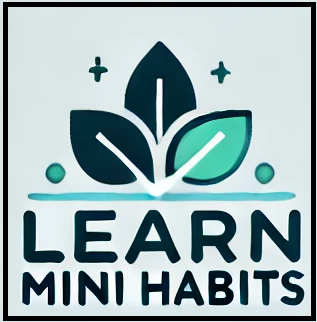In the United States, addictive behaviors such as overeating, gambling, excessive social media use, and smoking are widespread challenges. Breaking free from these habits is critical for enhancing life quality. Karen Meager, a psychotherapist and Neuro-Linguistic Programming (NLP) expert, offers actionable strategies to help overcome these behaviors.
With rising concerns about online gambling among children in the US, where targeted ads and gaming platforms contribute to the problem, early intervention has become more crucial than ever. Here are four therapist-backed steps to help you break the cycle of addiction.
1. Recognize Your Triggers
Identifying the triggers that lead to addictive behaviors is the first step toward breaking the cycle. These triggers can be internal, like emotions, or external, such as specific times or visual cues.
Common Triggers Include:
- Routine Times: You might feel the urge to smoke or indulge during particular times of the day, like work breaks. Replace these times with healthier activities, such as taking a walk or having a cup of coffee.
- Visual Cues: Seeing items like alcohol, cigarettes, or unhealthy snacks can prompt indulgence. Keeping these items out of sight can help reduce temptation.
Interrupting these triggers helps diminish the habitual response over time.

“The first step in overcoming any addiction is recognizing the patterns that keep you stuck.”
2. Understand What You Need
Rather than punishing yourself, which often leads to more addiction, observe what you feel before, during, and after the behavior. Identifying the underlying need can help you find healthier ways to satisfy it.
Examples:
- Smoking for Relaxation: Try deep breathing exercises, yoga, or physical activities that promote relaxation.
- Drinking for Stress Relief: Engage in hobbies or relaxation techniques like meditation or mindfulness to manage stress.
- Procrastination as Fear of Failure: Start with small tasks to gradually build confidence and reduce anxiety about larger risks.
Understanding the purpose of the behavior allows you to replace it with healthier alternatives that fulfill the same need.
3. Establish New, Healthy Habits
Creating new habits is more effective than merely trying to stop an old one. Filling the space left by the addictive behavior with positive actions helps prevent relapse.
Successful Strategies:
- Adjust exercise routines to disrupt unhealthy patterns, like switching from morning to evening workouts.
- Prepare multiple healthy meal options to reduce the likelihood of resorting to unhealthy foods.
- Change daily routines, such as spending less time in environments that encourage old habits.
By embedding new routines, you create a structure that supports long-term change.

“Addiction is not just about the substance; it’s about fulfilling a need you’re unaware of.”
Learn Relaxation Techniques
4. Learn Relaxation Techniques
Stress is a significant factor in maintaining addictive behaviors. Learning to relax and manage stress effectively can reduce the likelihood of relapse.
Relaxation Methods:
- Mindfulness: Staying present helps reduce stress and anxiety. Techniques like focusing on your current activity can prevent your mind from wandering to negative thoughts.
- Physical Exercise: Activities that promote deep, rhythmic breathing, like running, yoga, or Pilates, are excellent for reducing stress.
- Meditation or Hypnosis: These practices help calm the mind and reduce the cravings associated with addiction.
- Reading: Engaging with a good book can lower heart rates and build new, healthier mental pathways.
- Quality Sleep: Addressing sleep problems is crucial, as good rest is fundamental to overall health and stress management.
Final Thoughts
Breaking addictive behaviors is challenging but achievable with persistence. If one approach doesn’t work, try another. Professional help is available, but be cautious of quick-fix solutions. With determination and the right strategies, you can overcome addiction and lead a healthier, more fulfilling life.
Frequently Asked Questions :
What are the first steps to overcoming addictive behaviors?
The first steps include recognizing your triggers and understanding the underlying needs driving the behavior.
How can I effectively identify my triggers?
Track your behaviors and emotions in a journal to pinpoint specific times, environments, or feelings that trigger the addictive behavior.
Why is it important to replace old habits with new ones?
Replacing old habits with healthier ones helps fill the void left by the addiction and reduces the chances of relapse.
How do relaxation techniques aid in overcoming addiction?
Relaxation techniques, such as mindfulness and deep breathing, reduce stress and help manage cravings, making it easier to break the cycle of addiction.
What should I do if I relapse?
If you relapse, reflect on the triggers and strategies that led to it, adjust your approach, and seek support to continue your recovery journey.

